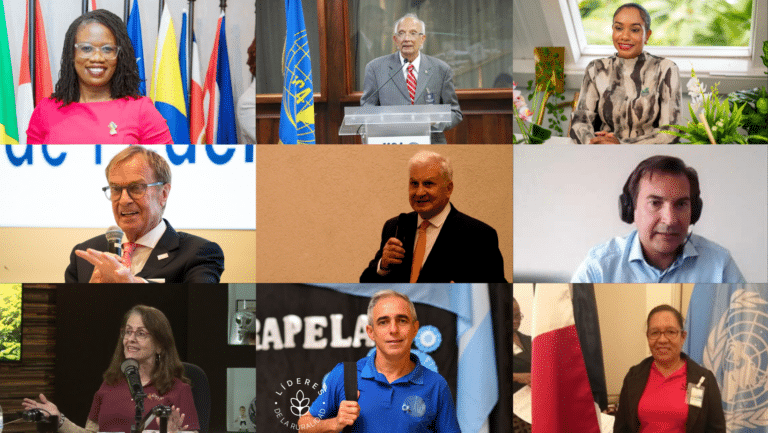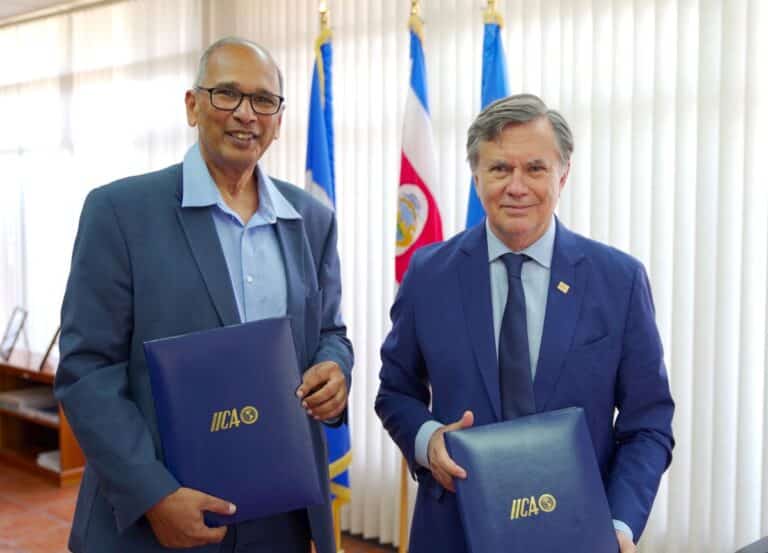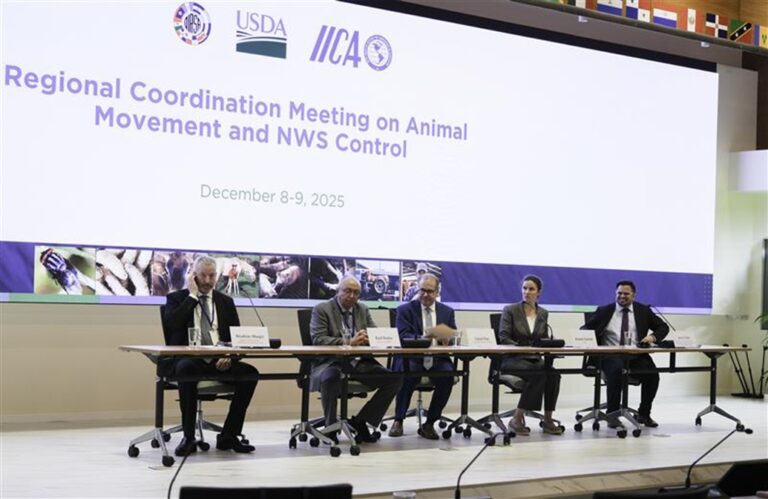The Secretariat of Agriculture of Mexico and IICA signed an agreement to train 150 technical personnel from the Caribbean in priority areas for the agricultural development of the region.
Merida, Mexico, 2 May, 2014 (IICA).Mexico and 14 countries of the Caribbean will benefit from a technical cooperation agreement on agriculture and rural development, which was signed within the framework of the Third Mexico–Caribbean Community Summit (CARICOM), which was held in the state of Yucatán.
The agreement on 29 April was signed by the Secretary of Agriculture, Livestock, Rural Development, Fisheries and Food (SAGARPA) of Mexico, Enrique Martínez y Martínez and the Director-General of the Inter-American Institute for Cooperation on Agriculture (IICA), Víctor M. Villalobos.

The Secretary of SAGARPA pointed out that IICA’s role was central to the signing of this agreement that will make it possible to strengthen relations with the Caribbean. Villalobos, for his part, reported that 14 Caribbean States will be able to strengthen their knowledge in areas related to agriculture and rural development, as well as promote sustainable agriculture.
“The agreement signed today, 29 April, is the most relevant technical cooperation in agriculture and development between Mexico and the Caribbean. IICA is honored to have facilitated the development of this cooperation”, pointed out Villalobos.
Mexican organizations involved in research and training will train 150 technical persons from the Caribbean countries in areas of priority for the region, such as tropical and protected crops, small ruminants, rural development, technological innovation, value chains and good agricultural practices, management of water and irrigation systems, as well as food safety.
The program is sponsored by SAGARPA with the participation of the Secretariat of Foreign Affairs (SRE), the Mexican Agency for International Development Cooperation (AMEXCID), and the National Council on Science and Technology (CONACYT).
With respect to implementation, IICA will draw on the technical capabilities of Mexican educational institutions specializing in agriculture and livestock research, in addition to the experience that will be contributed by agribusinesses in that country.
During the first stage of the program, training in Mexico will be done in English. The participants will be drawn from Antigua and Barbuda, Barbados, Bahamas, Dominica, Haiti, Grenada, Guyana, Jamaica, the Dominican Republic, Saint Kitts, and Nevis, Saint Lucia, Suriname, Saint Vincent and the Grenadines and Trinidad and Tobago.
The second stage involves transfer of the technology and capabilities acquired during the course, with supervised practicum in the CARICOM countries.
Finally, the lessons learned will be systematized and the training program will be evaluated, especially the results relating to productivity and the adaptation of good agricultural practices to the conditions of each country within the Caribbean.
For further information:
franklin.marin@iica.int











